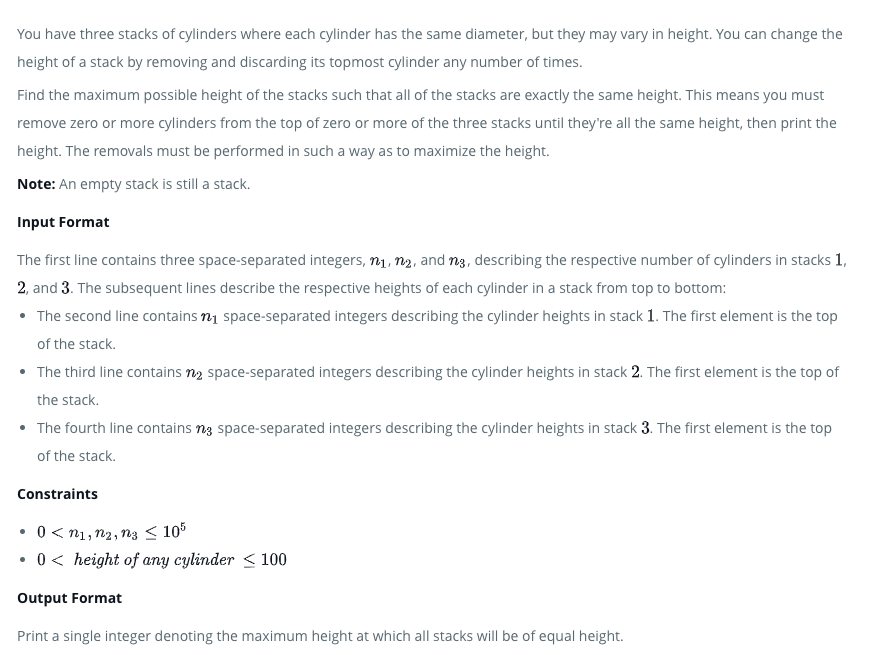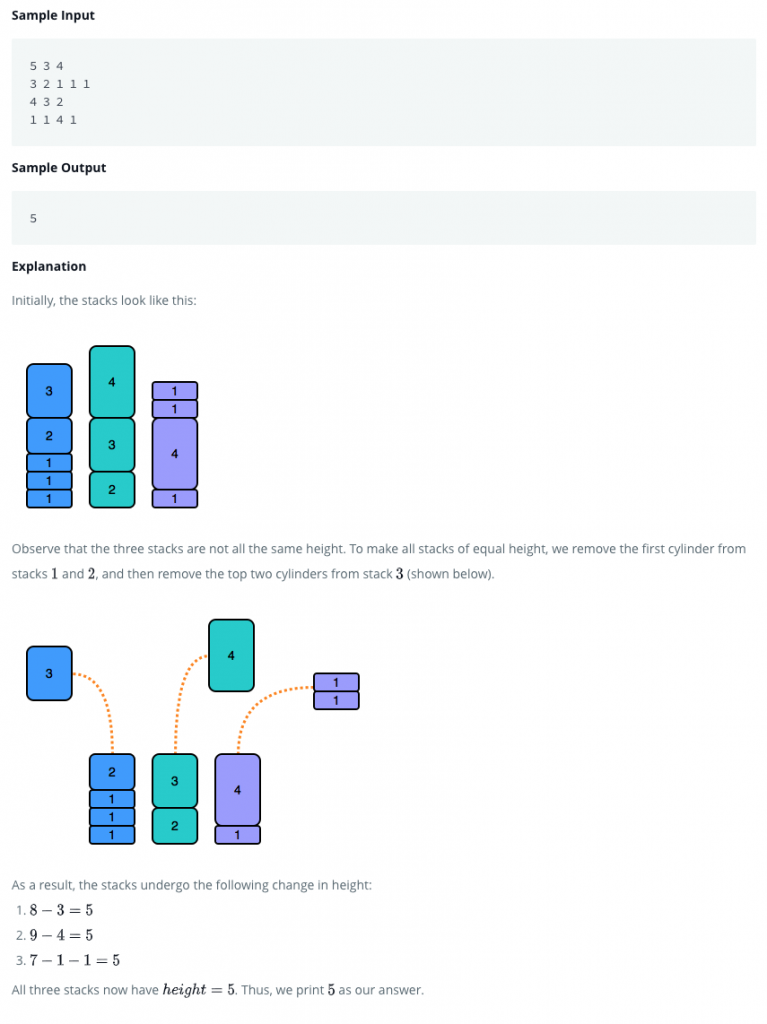Description

Submission

Submission
- Following is not a simplified version
- We don’t have to use real stacks, moving pointers(or indices) are enough
#include <vector>
#include <stack>
#include <iostream>
using namespace std;
/*
* Complete the equalStacks function below.
*/
int equalStacks(vector<int> h1, vector<int> h2, vector<int> h3) {
/*
* Write your code here.
*/
int height1 = 0, height2 = 0, height3 = 0;
stack<int> s1, s2, s3;
for(int i = h1.size() - 1; i >= 0; --i) {
height1 += h1[i];
s1.push(h1[i]);
}
for(int i = h2.size() - 1; i >= 0; --i) {
height2 += h2[i];
s2.push(h2[i]);
}
for(int i = h3.size() - 1; i >= 0; --i) {
height3 += h3[i];
s3.push(h3[i]);
}
for(; height1 != height2 || height1 != height3 || height2 != height3; ) {
if(height1 >= height2 && height1 >= height3) {
height1 -= s1.top();
s1.pop();
} else if(height2 >= height1 && height2 >= height3) {
height2 -= s2.top();
s2.pop();
} else if(height3 >= height1 && height3 >= height2) {
height3 -= s3.top();
s3.pop();
}
}
return height1;
}
int main()
{
int n1, n2, n3;
cin >> n1 >> n2 >> n3;
vector<int> h1(n1);
for (int h1_itr = 0; h1_itr < n1; h1_itr++) {
cin >> h1[h1_itr];
}
vector<int> h2(n2);
for (int h2_itr = 0; h2_itr < n2; h2_itr++) {
cin >> h2[h2_itr];
}
vector<int> h3(n3);
for (int h3_itr = 0; h3_itr < n3; h3_itr++) {
cin >> h3[h3_itr];
}
int result = equalStacks(h1, h2, h3);
cout << result << "\n";
return 0;
}

